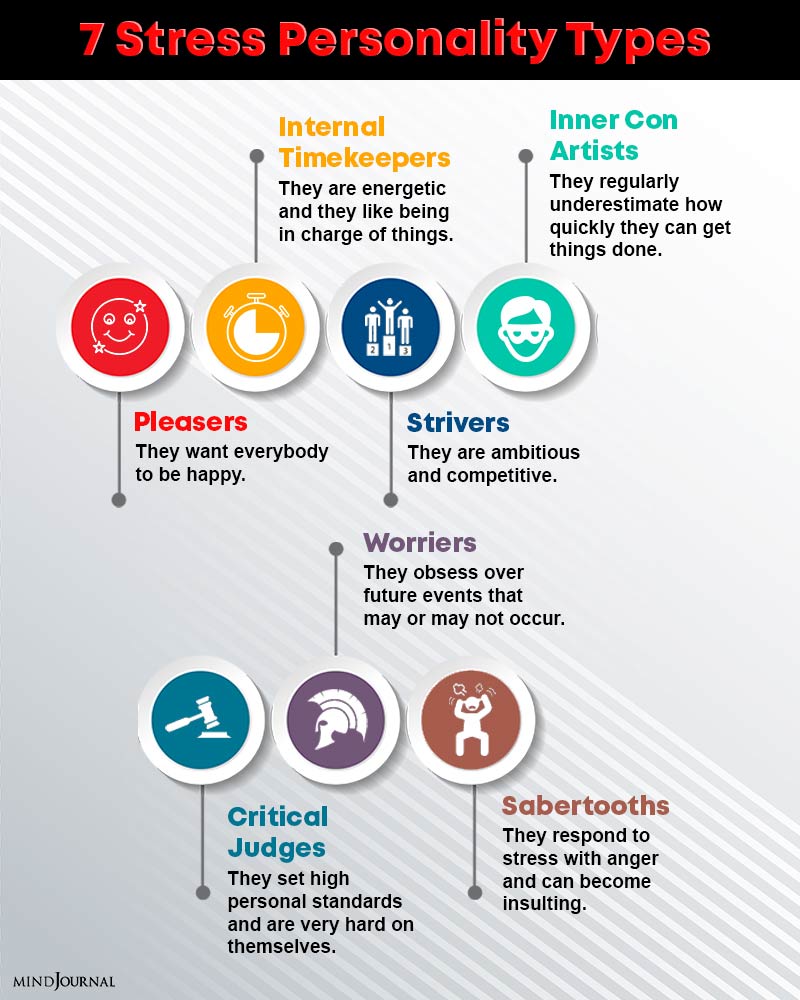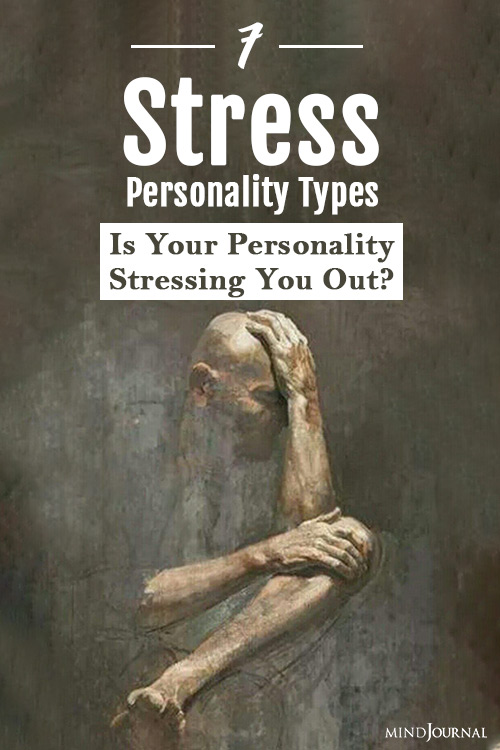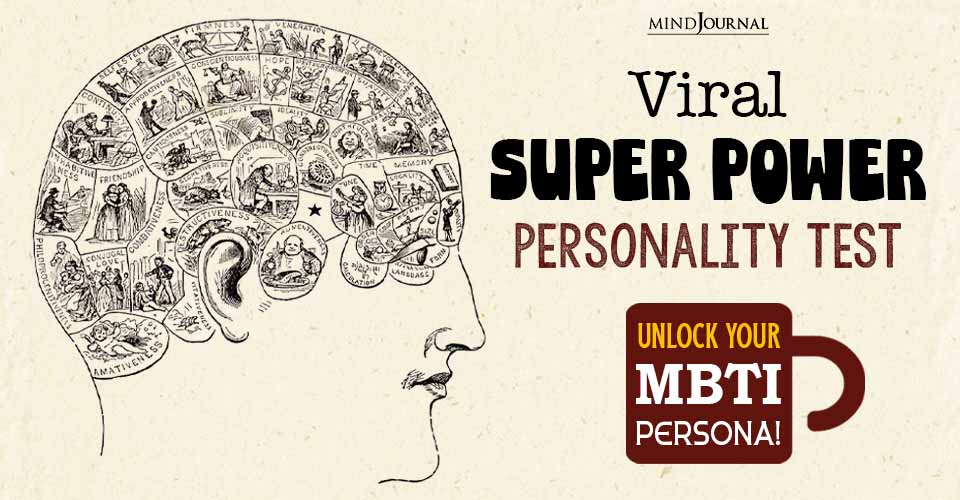You will meet many people who will stress you out and make you feel crazy. But, sometimes stress personality is the reason for your down fall. Read more to find out how your own personality is stressing you out.
It’s no secret that many of us feel stressed out at work.
This stress results from the collision between the stressful life events that we drag into the workplace from our private lives and the job-related stressors that afflict us on a daily basis at work. Work overload, job insecurity, and poor interpersonal relationships with bosses and coworkers do not operate in a vacuum; they amplify whatever else is going on in the rest of our lives.
One of the things that we rarely consider is the possibility that our own personalities are a major contributor to our frazzled state-of-being. We may be aware that having a “Type A” personality or that being a pessimist may make us more susceptible to work-related stress, but personality traits and stress can interact in even more subtle ways.
Related: This 10 Question Test Reveals If You’re Type A Or Type B Personality
The late Mary Dempcy, along with Rene Tihista, wrote a book titled Stress Personalities: A Look Inside Ourselves. The book was based on Dempcy’s many years of conducting stress management workshops, and she identified seven different ways in which our personality can stress us out. Dempcy’s system is not a scientific theory per se, but it offers a handy and intuitively appealing way to think about the relationship between personality and stress.
7 Stress Personality Types

1. Pleasers
“Pleasers” want everybody to be happy. They go the extra mile, cover for their coworkers as needed, and tackle whatever needs to be done for the group to succeed. They graciously accept decisions that are agreeable to the greatest number of people, often sacrificing their own interests in the process.
For example, they may work the most undesirable hours or take on the most unpleasant tasks because they know that other employees will not want to do so. Over time, pleasers may begin to feel resentful and unappreciated because they have taken on too much and get little thanks for it.
2. Internal Timekeepers
“Internal Timekeepers” like responsibility. They are energetic and they like being in charge of things. However, these proclivities often lead them to take on too many duties, causing them to feel overwhelmed and anxious. Because their attention is divided among so many tasks, they become inefficient and stressed out.
Unlike pleasers, internal timekeepers are not driven by the need to make others happy, but rather by the need to feel competent and useful.
Related: The 12 Personality Archetypes: Which One Dominates You?
3. Strivers
“Strivers” are ambitious and competitive. They always have an eye on what their coworkers are up to and push themselves to be the best worker in the cohort. The need to always be #1, places unreasonable demands on them, and can lead to burnout in short order.
Strivers may also become envious over the success of others.
4. Inner Con Artists
“Inner Con Artists” do not work very hard, and they may be unaware of just how hard their coworkers are working. They regularly underestimate how quickly they can get things done and how much effort it will take to be successful. Consequently, inner con artists may procrastinate and fall behind.
Because they also wish to avoid conflict, they don’t communicate with the boss or with their colleagues until it is too late to dig out of the hole they find themselves in.
5. Critical Judges
“Critical Judges” are their own worst enemies. They set high personal standards and are very hard on themselves when they make mistakes. They tend to ruminate on their shortcomings and on past failures in a completely unproductive way, leading to a downward spiral and a crisis of confidence.
6. Worriers
“Worriers” obsess over future events that may or may not occur. They hate unpredictability and they are constantly devising Plan A, Plan B, and Plan C for dealing with problems that may never materialize. This preoccupation with the future generates stress and interferes with the ability to deal with actual problems in the here-and-now.
7. Sabertooths
“Sabertooths” respond to stress with anger. They can become caustic and insulting to their coworkers, creating a negative vibe in the workplace that is highly contagious. One or two sabertooths at the office can create a toxic environment that ruins things for everyone.
Related: Toxic Coworkers: Dealing With 7 Most Dangerous Work Personalities
Do you recognize yourself in any of these descriptions?
While Dempcy’s seven stress personalities were designed to help us understand stress at work, they also readily lend themselves to understanding stress in college students, families, and social groups. Each of us can think of pleasers, worriers, and sabertooths who have prowled the different domains of our world—and sometimes, they just might have been you.
Written By Frank T. McAndrew
Originally Appeared In Psychology Today
Most of the time you might end up holding other people responsible for your difficulties, but the truth is, there will be times when your own personality will end up stressing you out a lot. Introspection can prove to be a challenge sometimes, but the moment you realize that it is your own personality which is stressing you out, then stop, take a deep breath, and try to deal with the problem patiently.











Leave a Reply
You must be logged in to post a comment.